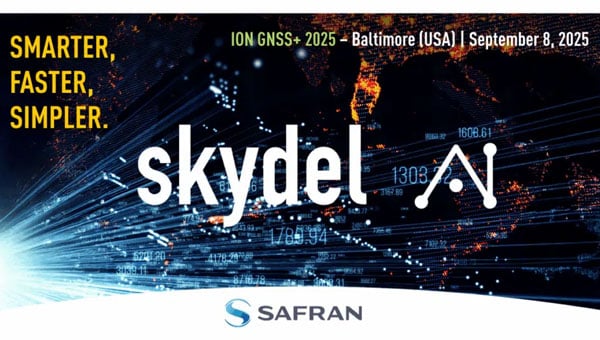Safran Electronics & Defense recently introduced a transformative tool in GNSS simulation technology, known as Skydel AI. This advanced solution harnesses artificial intelligence to automate and simplify the setup of simulation scenarios, fundamentally reshaping how businesses can approach GNSS (Global Navigation Satellite System) testing.
With Skydel AI, the complexities usually associated with GNSS simulation are significantly mitigated. The platform is designed with an intuitive interface that leverages natural language commands, allowing users to interact with the system more fluidly. By enabling users to query GNSS and Skydel topics, request assistance, and dynamically configure simulation parameters, Skydel AI can generate Python code tailored for Skydel use. This level of automation not only reduces the time needed for setup but also streamlines the entire simulation process, which is a critical efficiency gain for SMBs engaged in product development or validation.
This innovation is particularly noteworthy as it aligns closely with the necessities of small and medium-sized businesses (SMBs) looking to enhance their development cycles. As SMB leaders are keenly aware, time is often a company’s most precious resource. Pierre-Marie Leveel, program director for Positioning, Navigation, and Timing (PNT) at Safran, points out that the integration of Skydel AI into their support offerings will enable customers to improve their development processes dramatically. This helps expedite manual scenario tuning and its associated lengthy test cycles—two areas where SMBs can often find themselves bogged down.
The opportunity here is clear. By adopting intelligent systems like Skydel AI, SMBs can markedly enhance their innovation capabilities. Imagine a software startup in the logistics sector that relies on GNSS for route optimization. With Skydel AI, they can quickly create and modify simulation scenarios to test routing algorithms without incurring excessive setup times. This presents an immediate competitive advantage, as the company can iterate faster based on real-time data and insights from their simulations.
However, it is essential to consider the associated risks. Transitioning to an automated system like Skydel AI requires an upfront investment in training and possibly even a shift in company mindset towards embracing AI technologies. SMBs must carefully evaluate their existing workflows and determine how Skydel AI can be seamlessly integrated. Resistance to change can occur, and thus proactive change management steps are vital.
A practical step in this direction involves training personnel on the new tool. Start by introducing team members to natural language processing features and demonstrating how they can utilize Python code snippets for their unique simulation needs. It could also be beneficial to pilot the solution on a smaller scale, focusing on one product or aspect of development, to gauge its impact before a more extensive rollout.
In addition to Simulating GNSS scenarios, Safran’s innovative tropospheric model further complements the offerings of Skydel AI. This enhancement employs real-time weather data and AI predictions, significantly boosting wet delay accuracy. By integrating with platforms such as Open-Meteo API, the model is built upon real-world data amassed from a substantial number of GNSS stations. This represents yet another strategic option for SMBs, allowing them to generate accurate simulations that consider real-world environmental factors—a crucial advantage in achieving operational excellence.
The return on investment (ROI) for implementing Skydel AI and its accompanying features can be substantial. Through improved simulation accuracy and speed, SMBs can accelerate product development timelines, reduce testing costs, and ultimately bring more robust products to market faster. The possibility to dynamically tweak simulations in real time means companies can adapt more readily to evolving market conditions, stakeholder expectations, and technological advancements.
For SMB leaders looking to harness the power of automation, the steps are actionable. Begin by identifying repetitive or complex processes within your workflow where automation can be beneficial. Invest time in researching AI tools such as Skydel AI, Make, or Zapier, which cater specifically to your operational needs. Create a roadmap for implementation that includes training and piloting phases, allowing for iterative feedback and adjustments. As you build the automation muscle within your organization, continuously evaluate performance metrics to ensure that the desired outcomes are being achieved.
In conclusion, Safran Electronics & Defense’s advancements with Skydel AI exemplify how the integration of AI can streamline complex workflows and fortify a company’s position within a competitive landscape. As SMBs increasingly embrace such technologies, the agility provided by automation will be a game changer in driving efficiency and innovation.
FlowMind AI Insight: Adoption of AI-driven automation tools like Skydel AI empowers SMBs to transform their operational paradigms. By streamlining workflows and enhancing testing capabilities, businesses can cultivate a culture of innovation that leads to faster product development and improved responsiveness to market demands.
Original article: Read here
2025-09-12 15:31:00

